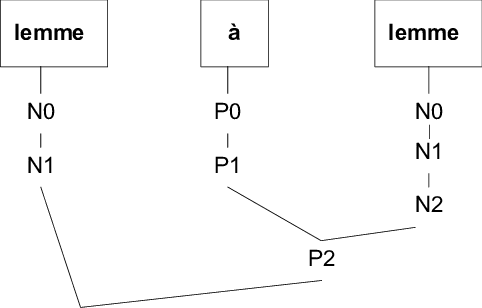Nominaux, or nominal expressions, play an essential position in language and verbal exchange. These expressions, which include nouns and noun terms, function the building blocks of sentences, allowing us to bring ideas, describe objects, and communicate effectively. This article delves into the concept of nominaux, exploring their structure, usage, variations, and importance in both linguistic principle and practical communique.
1. Defining Nominaux: What Are They?
At its center, a nominal expression, or nominaux, refers to a word or group of words that features as a noun inside a sentence. Nouns, being the number one material of nominaux, can constitute humans, places, things, or abstract thoughts. For example, within the sentence “The brief brown fox jumps over the lazy dog,” the phrases “fox” and “dog” are nominaux. However, nominaux amplify beyond easy nouns to consist of noun phrases including “the short brown fox” and “the lazy canine,” which comprise modifiers like adjectives and articles to offer greater detail and specificity.
2. Structure of Nominaux: Components and Variations
Nominaux can variety from simple to complex structures. A simple nominal consists of a unmarried noun, such as “cat” or “tree.” In assessment, a complicated nominal, or noun word, consists of extra factors together with determiners (e.G., “the,” “a”), adjectives (e.G., “red,” “tall”), and now and again prepositional phrases (e.G., “inside the lawn,” “on the table”).
Consider the phrase “the tall guy within the black coat.” Here, “man” is the pinnacle noun, “the” is the determiner, “tall” is an adjective, and “in the black coat” is a prepositional word that in addition modifies the noun. Each element works collectively to create a wealthy, descriptive nominal that conveys a particular photo.
3. Functions of Nominaux in Sentences
Nominaux serve numerous critical capabilities in sentences, in general acting as subjects, objects, and complements. As subjects, nominaux perform the motion of the verb. For example, in ‘Dog Barking’ the question is ‘dog’. As gadgets, they receive the movement of the verb, as visible in “She puppy the canine,” in which “the dog” is the object. Nominaux can also function as complements, providing additional data about the concern or item. For example, in “She is a teacher,” “an instructor” enhances the issue “she.”
Furthermore, nominaux are instrumental in forming possessive constructions, indicating ownership or affiliation. Phrases like “John’s book” or “the automobile’s engine” display how nominaux can show ownership and make clear relationships among entities.
4. Nominaux Across Different Languages
The structure and use of nominaux can vary substantially across languages. In English, nominaux commonly observe an honest sample with determiners and adjectives preceding the noun. However, different languages may have different syntactic rules and structures. For instance, in French, the noun often precedes the adjective, as in “une maison blanche” (a white residence), as compared to the English “a white house.”
Moreover, some languages employ complex systems of noun training or genders, influencing the form and agreement of nominaux. In languages like Spanish and German, nouns are labeled into distinct genders, every requiring particular articles and adjective paperwork. This range highlights the richness and complexity of nominaux in global linguistic landscapes.
5. The Role of Nominaux in Communication and Cognition
Nominaux are fundamental to human conversation, permitting us to perceive, describe, and differentiate entities in our surroundings. They facilitate clarity and precision, permitting audio system and writers to convey specific facts efficaciously. For instance, specifying “the blue automobile parked outdoor the residence” offers a clean, unambiguous reference in comparison to surely pronouncing “an automobile.”
In cognitive phrases, nominaux assist arrange and categorize our reports and information. By naming and classifying items, human beings, and concepts, nominaux resource in reminiscence, gaining knowledge of, and information. They also play a crucial position in abstract wondering and reasoning, permitting us to talk about and control ideas past immediate sensory stories.
6. The Evolution and Adaptation of Nominaux
Language is dynamic, and nominaux evolve and adapt over time. New nouns enter the lexicon as society modifications and new ideas, technologies, and cultural phenomena emerge. For example, phrases like “cellphone,” “hashtag,” and “climate alternate” are surprisingly current additions that reflect modern realities.
Additionally, present nominaux can shift in meaning or utilization. The phrase “mouse,” once usually related to a small rodent, now additionally typically refers to a pc enter tool. This flexibility demonstrates the adaptive nature of language and the continued improvement of nominaux in response to converting contexts.
Conclusion: The Significance of Nominaux
In precis, nominaux are essential factors of language that underpin our capability to speak correctly and think abstractly. From their structural components and features within sentences to their versions throughout languages and evolution over time, nominaux encompass the complexity and adaptability of human language. Understanding nominaux enriches our appreciation of linguistic diversity and enhances our capacity to explicit ourselves with precision and readability. As language continues to evolve, so too will the nominaux that form our communication and cognitive strategies.
